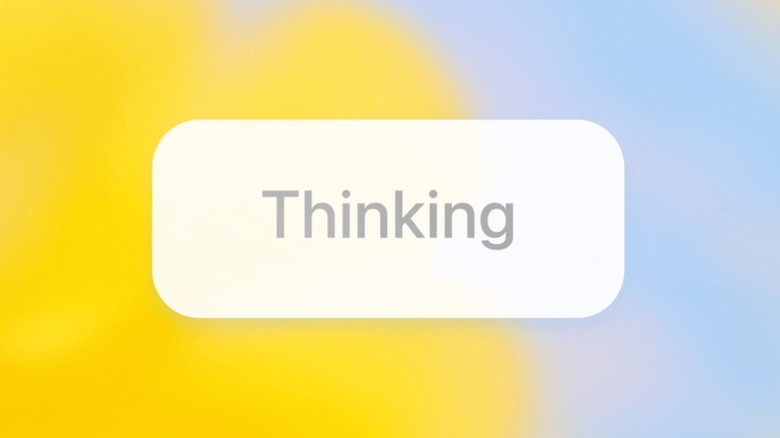OpenAI For Countries Will Give ChatGPT A Huge Advantage, But That's Not Good News
After announcing the big for-profit OpenAI restructuring that everybody expected, OpenAI just introduced a new AI initiative that could make ChatGPT the default AI choice for democratic countries and give the chatbot a major edge over competitors. OpenAI calls it "OpenAI for Countries," essentially the international version of Stargate.
Project Stargate is OpenAI's plan to invest $500 billion in AI infrastructure over the next few years, with help and support from the US government. OpenAI is working with Microsoft, SoftBank, and others on the project. Stargate will give OpenAI the massive compute power it needs for the future of ChatGPT.
OpenAI wants to replicate that kind of partnership with other governments around the world that are interested in their own Stargate-like projects. The OpenAI for Countries initiative will launch with 10 unnamed countries, where OpenAI will build ChatGPT infrastructure tailored to each market's needs, with the blessing of the US government.
OpenAI announced the OpenAI for Countries project in a blog post, pitching it as a way to make safe, democratic AI the default, rather than AI built by authoritarian regimes:
We want to help these countries, and in the process, spread democratic AI, which means the development, use and deployment of AI that protects and incorporates long-standing democratic principles. Examples of this include the freedom for people to choose how they work with and direct AI, the prevention of government use of AI to amass control, and a free market that ensures free competition. All these things contribute to broad distribution of the benefits of AI, discourage the concentration of power, and help advance our mission. Likewise, we believe that partnering closely with the US government is the best way to advance democratic AI.
As a longtime ChatGPT user, I agree with all of that. I wouldn't use AI software like DeepSeek, no matter how advanced, because it includes censorship guardrails aligned with the Chinese government's values. It also sends all your data to China.
In fact, if DeepSeek hadn't become such a big alternative to ChatGPT, I'm not sure OpenAI would have moved forward with this initiative so easily. DeepSeek offers a strong ChatGPT rival that's free to use. You can install the open-source version on your computer to avoid censorship and data sharing with China. But it still originates from a non-democratic country, and that's part of what's driving OpenAI's democratic AI campaign.
Politics aside, OpenAI for Countries will be a commercial partnership between OpenAI and international governments. These deals will involve building AI infrastructure locally, so ChatGPT data from users in those regions can be stored within their borders.
OpenAI will also create custom versions of ChatGPT for each country's citizens. It's unclear whether these versions will match the internationally available ChatGPT, but I'd expect them to:
This will help deliver improved healthcare and education, more efficient public services, and more. This will be AI of, by and for the needs of each particular country, localized in their language and for their culture and respecting future global standards.
OpenAI also says it will continue building safe AI models that respect democratic values and human rights. OpenAI for Countries will include raising national start-up funds to support "healthy national AI ecosystems."
All of this would happen through "formalized infrastructure collaborations, and in coordination with the US government."
That all sounds great in theory. In practice, it could give OpenAI a level of power and influence that makes it nearly impossible to compete with.
One of OpenAI's top priorities right now is securing the compute power and energy needed to develop AGI. That requires capital, which is why it's creating a for-profit arm. OpenAI also wants to monetize ChatGPT. There's nothing wrong with that.
OpenAI for Countries helps on all fronts. Government funding for infrastructure will let OpenAI keep building better ChatGPT models on its path toward more advanced AI.
But the partnerships will also give OpenAI significant advantages and dominant market positions, potentially stifling competition in the AI space.
If a democratic government invests in Stargate-like infrastructure, ChatGPT could become the default AI across industries like healthcare and education. That government will want to see a return on its AI investment by delivering immediate benefits to its citizens.
In turn, those citizens will get used to relying on ChatGPT for personal AI tasks, especially if it's also what they use at work.
While OpenAI will be a partner, it will also profit from government institutions using custom ChatGPT models and from individuals who may subscribe to paid versions of the tool.
Democratic AI is a solid foundation for the OpenAI for Countries initiative, but it could also lead to OpenAI becoming an AI monopoly. We've seen similar dominance before with companies like Microsoft and Google, and that happened without government support. An AI monopoly would be far more serious than one involving Internet Explorer or Google Search.
I say that as a ChatGPT Plus subscriber who has no plans to leave. But I also don't want any single AI company to dominate the space. Countries exploring Stargate-style infrastructure might want to support local AI development before turning to OpenAI for Countries.
The closest example we have right now is a multi-billion-dollar partnership between OpenAI and SoftBank in Japan. The two created a local joint venture called SB OpenAI Japan to manage ChatGPT-powered AI products that SoftBank will roll out across its businesses. That's a private deal, but it may offer a glimpse of how OpenAI for Countries could operate.
